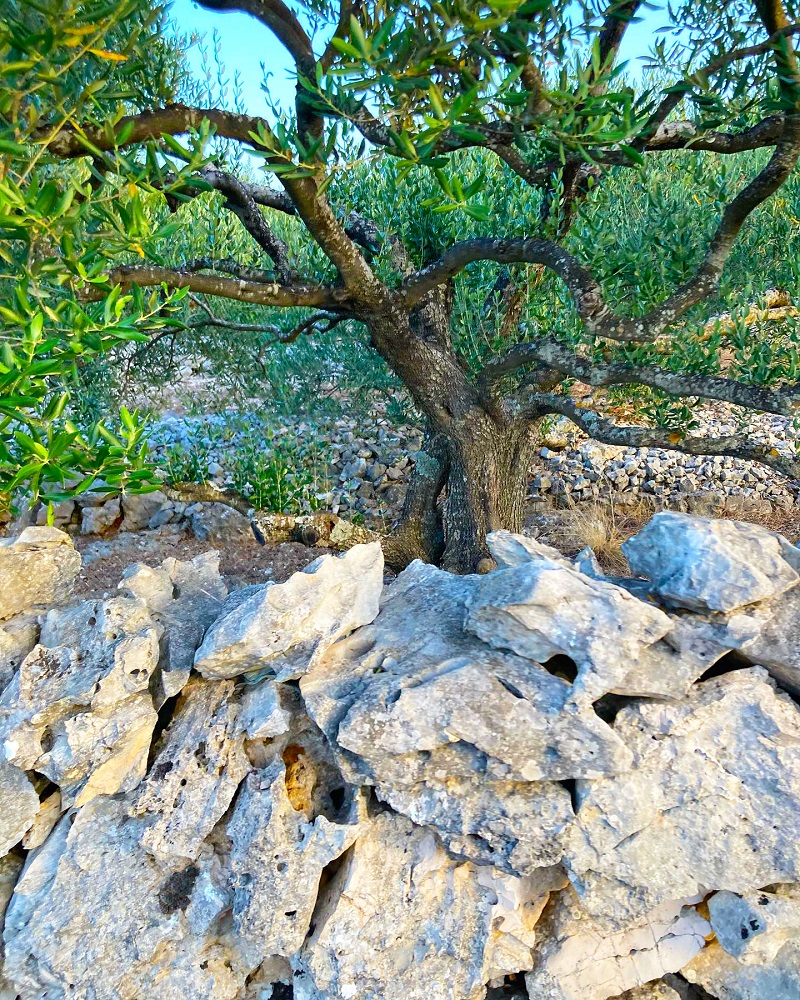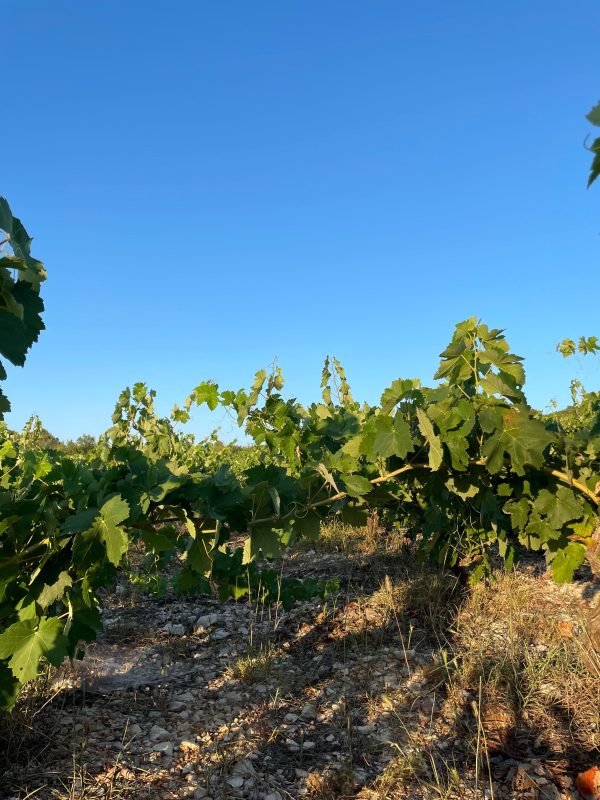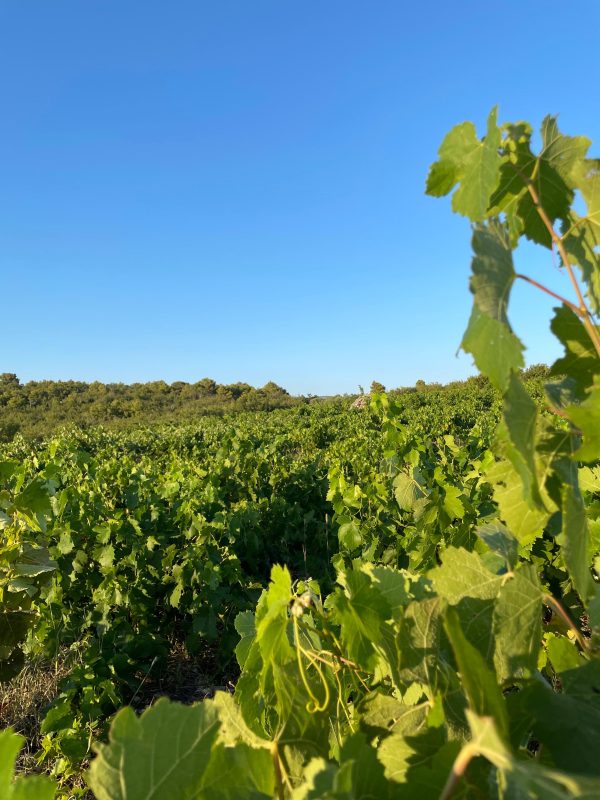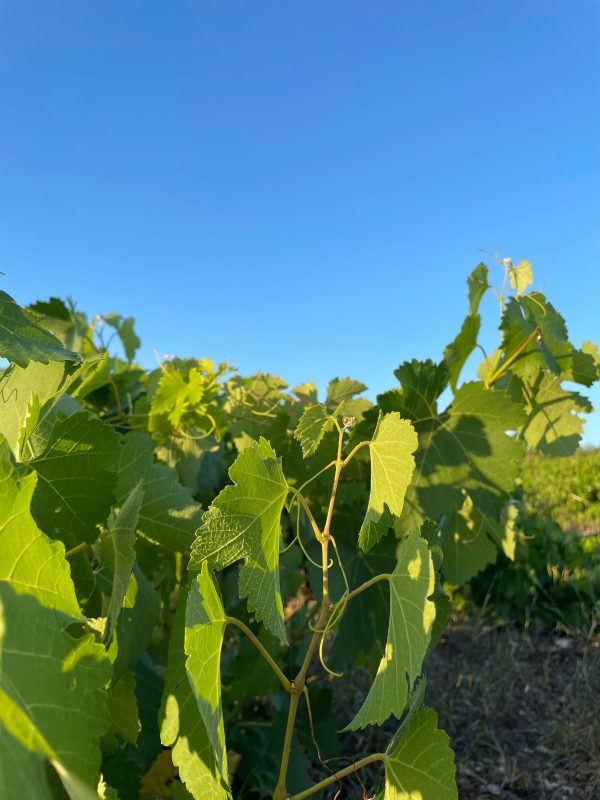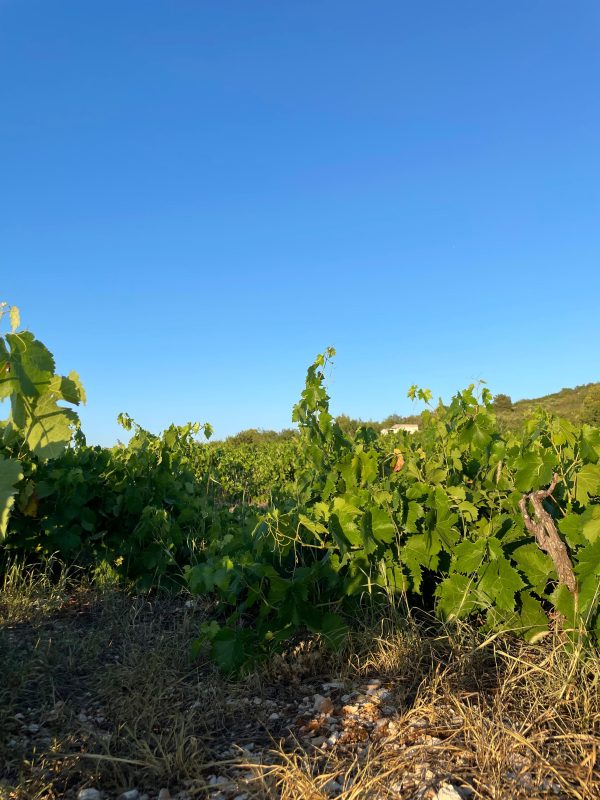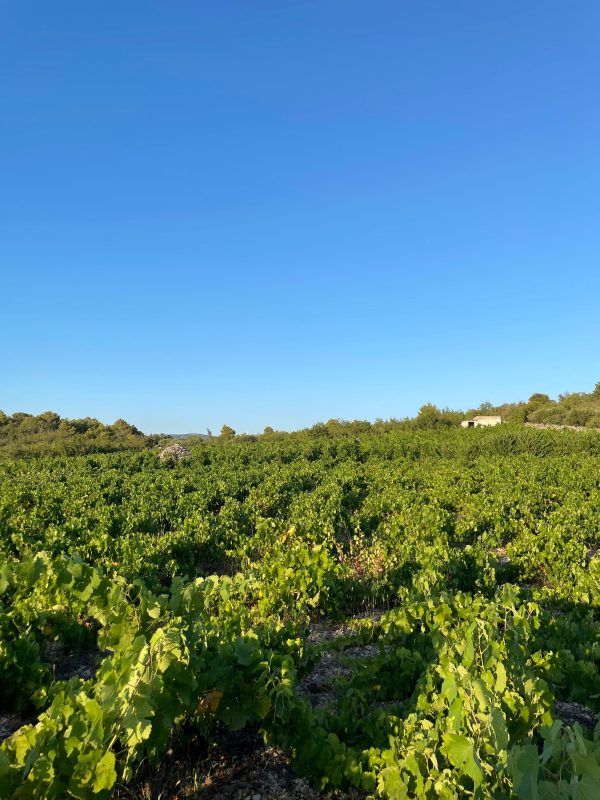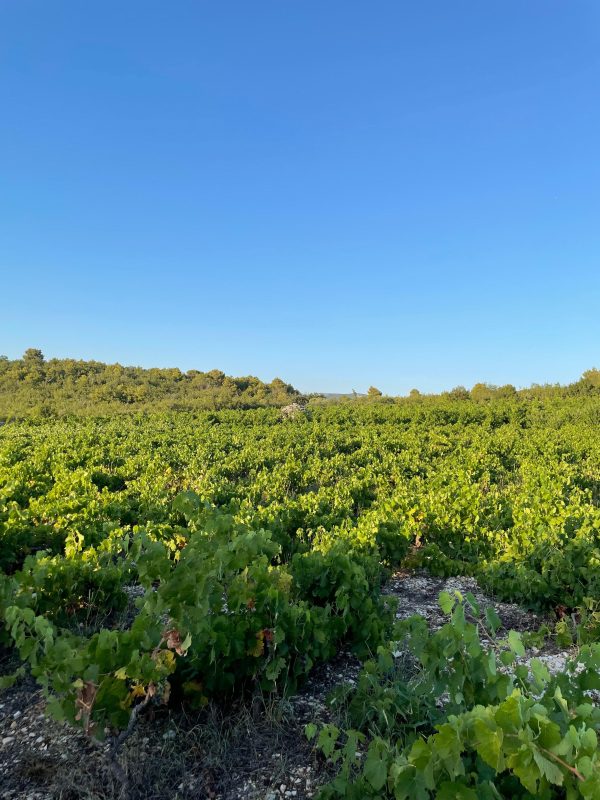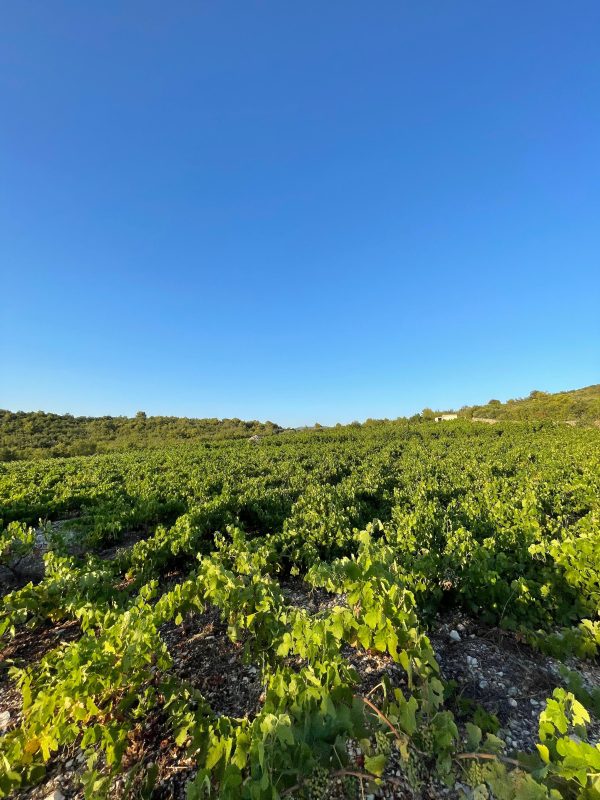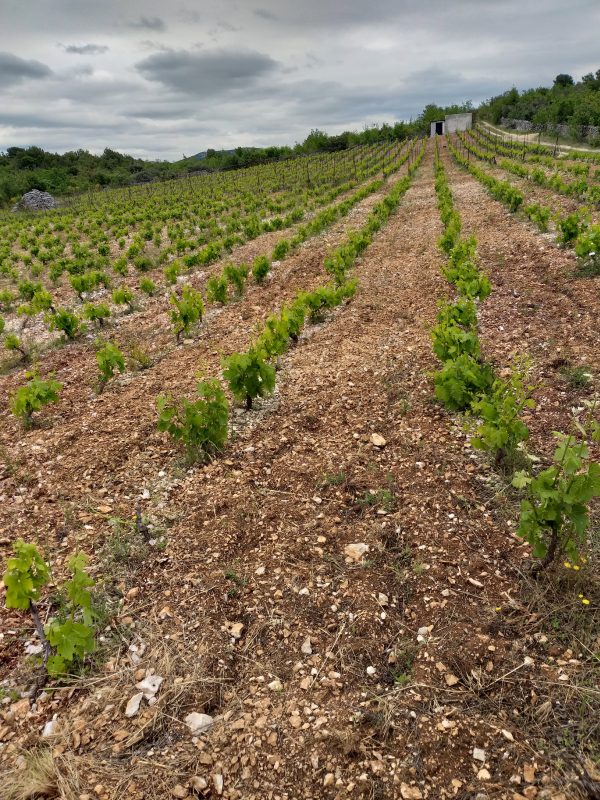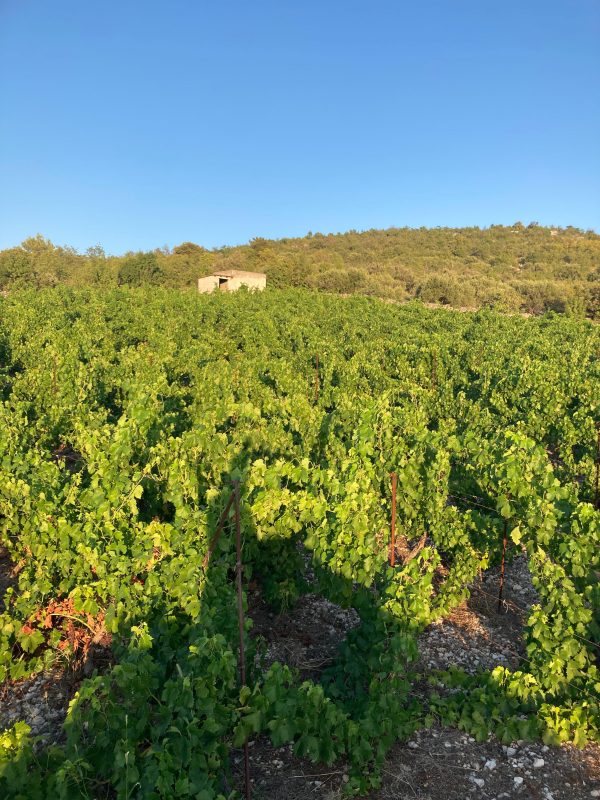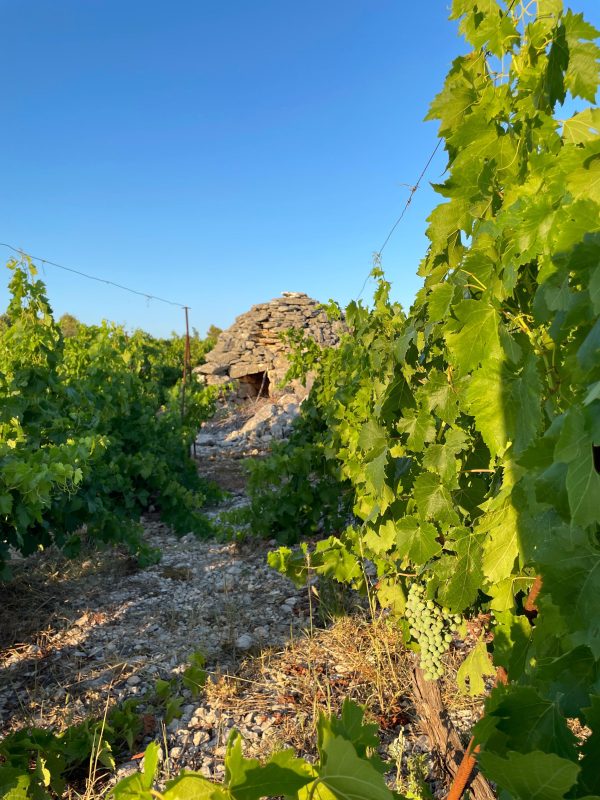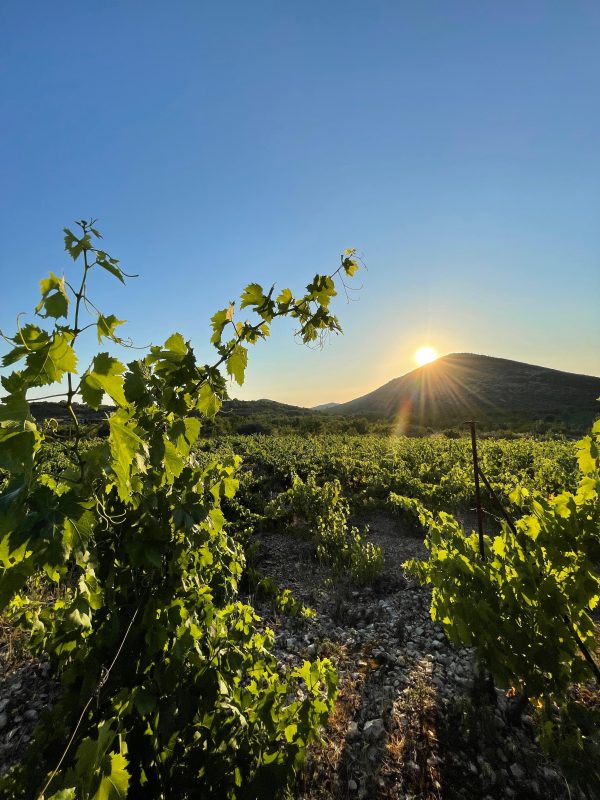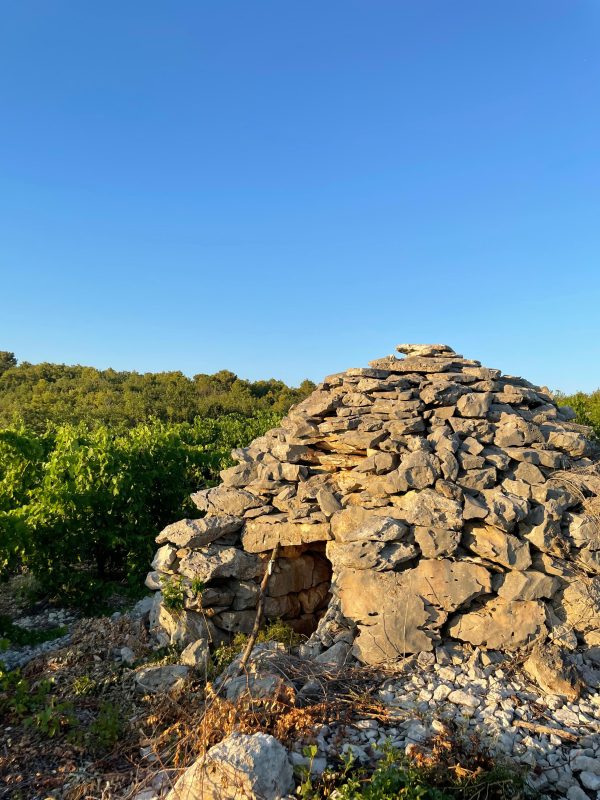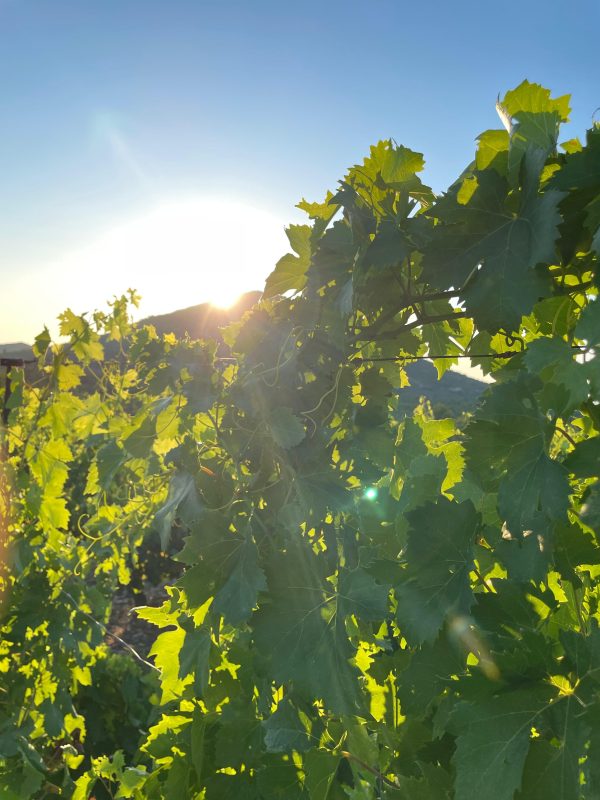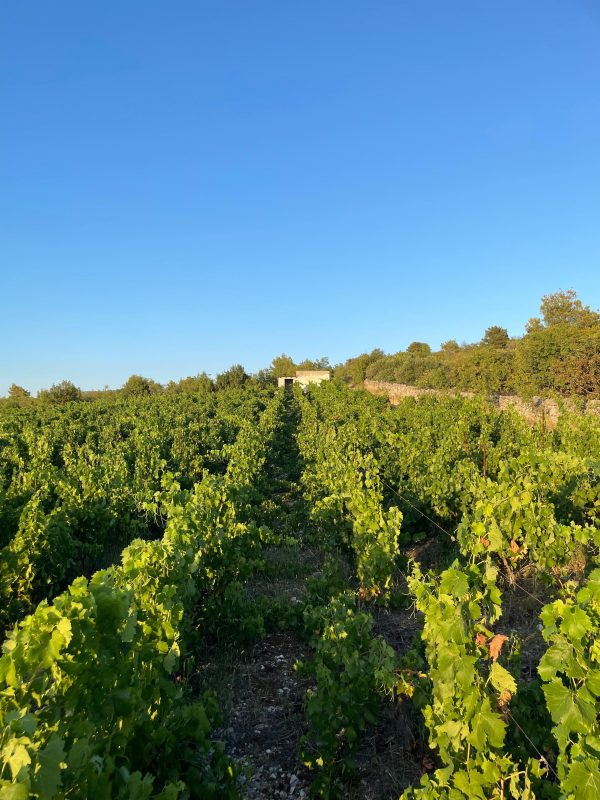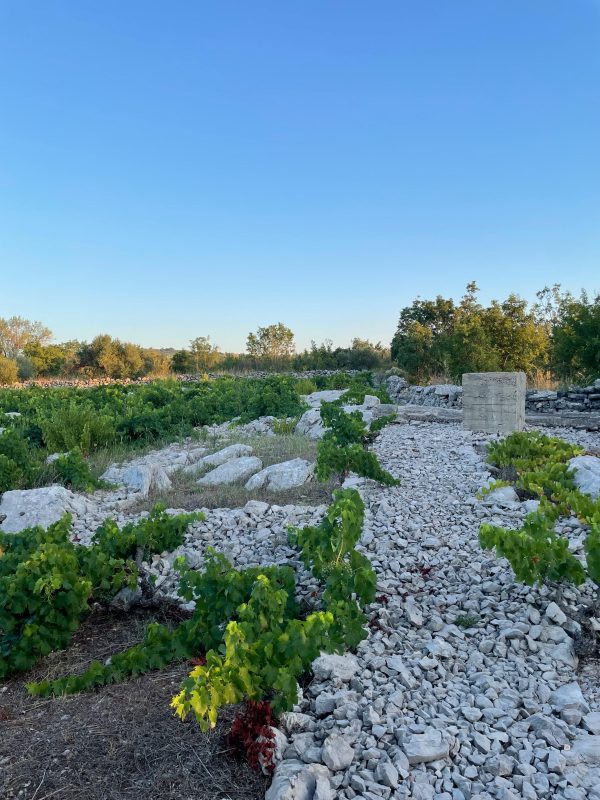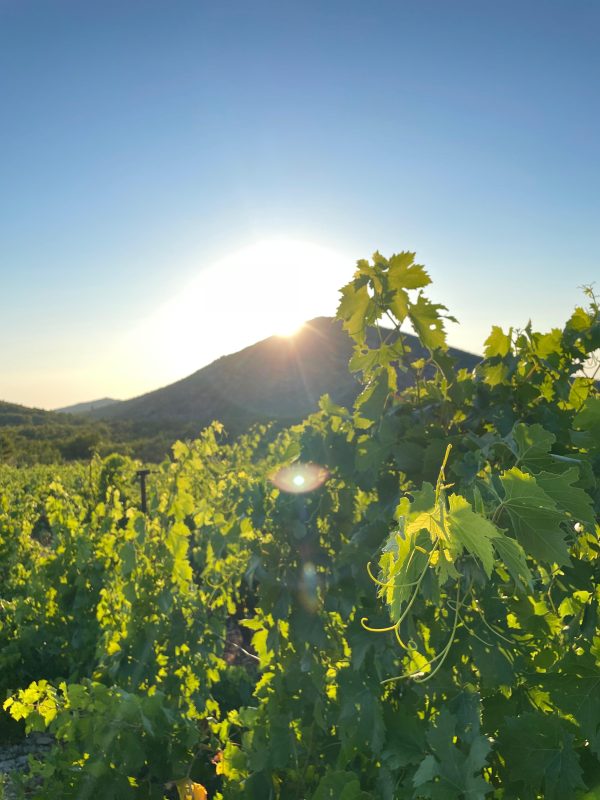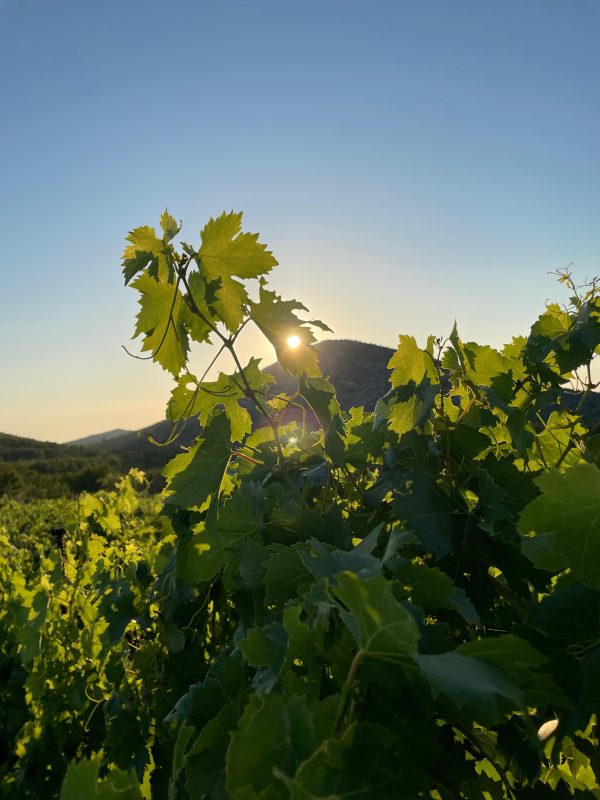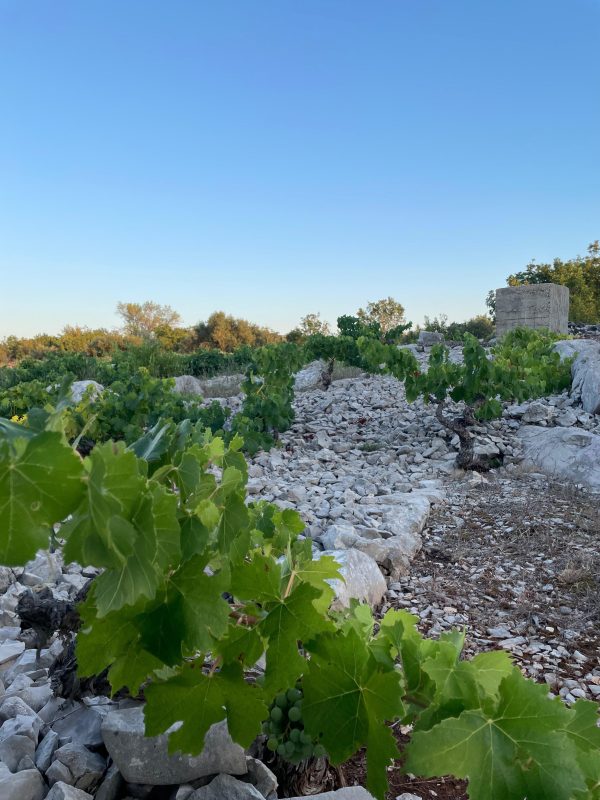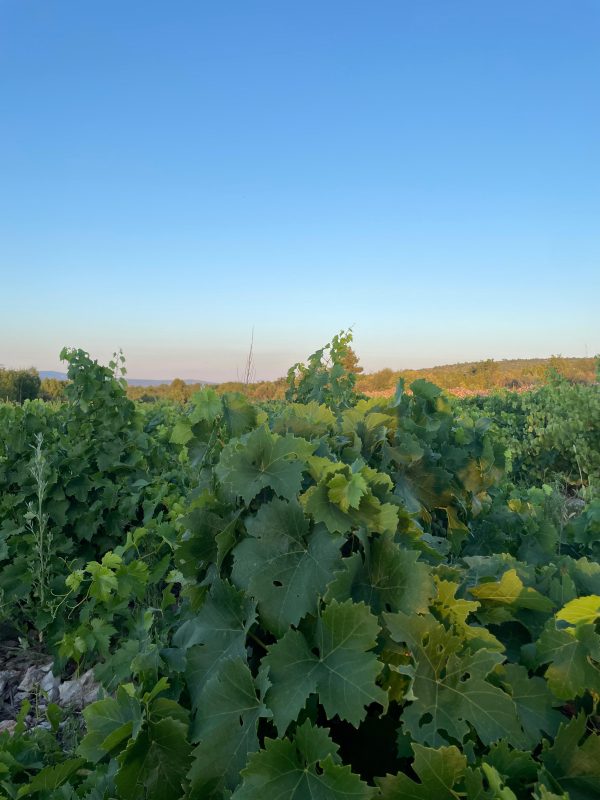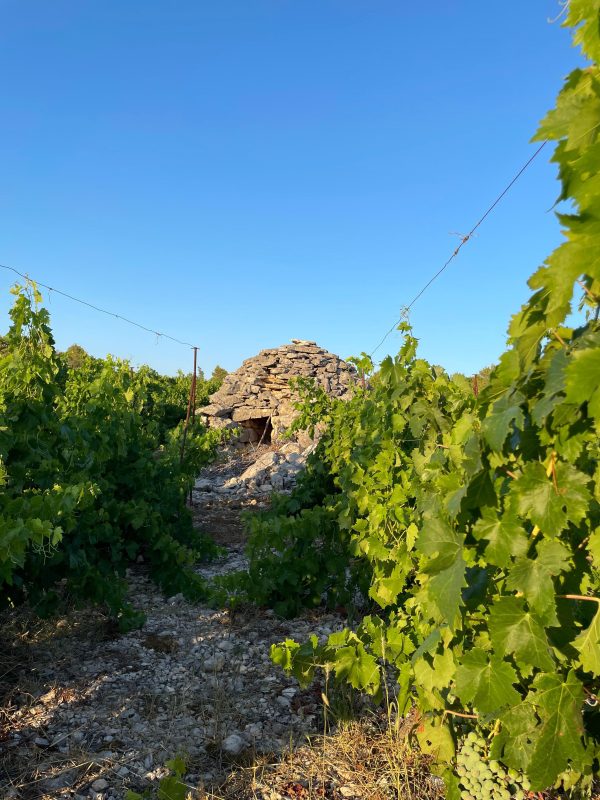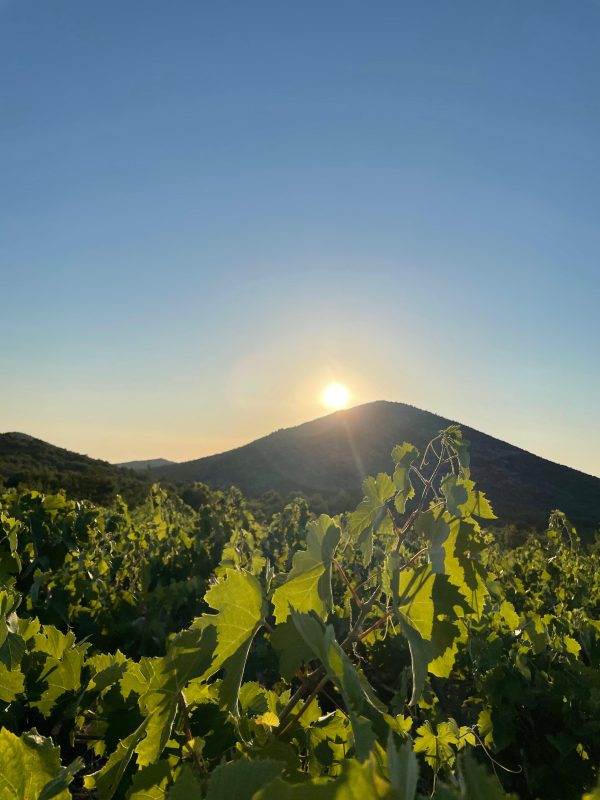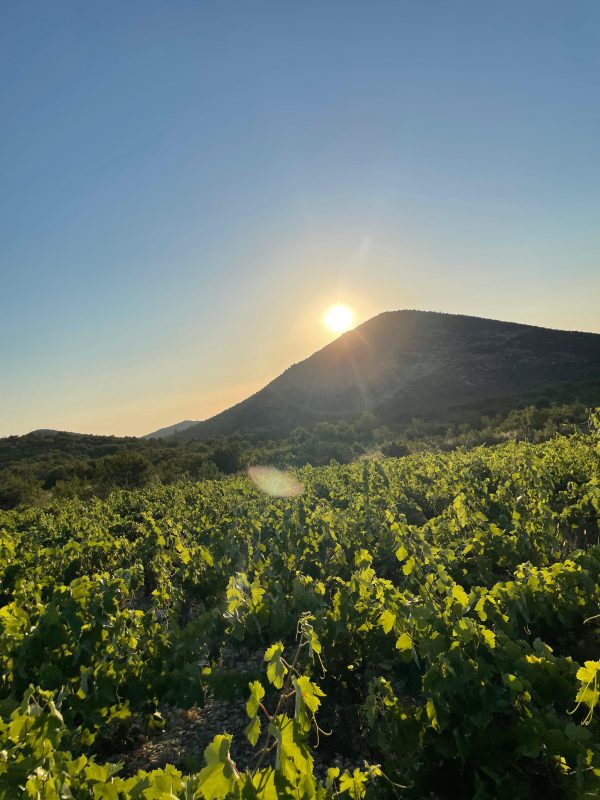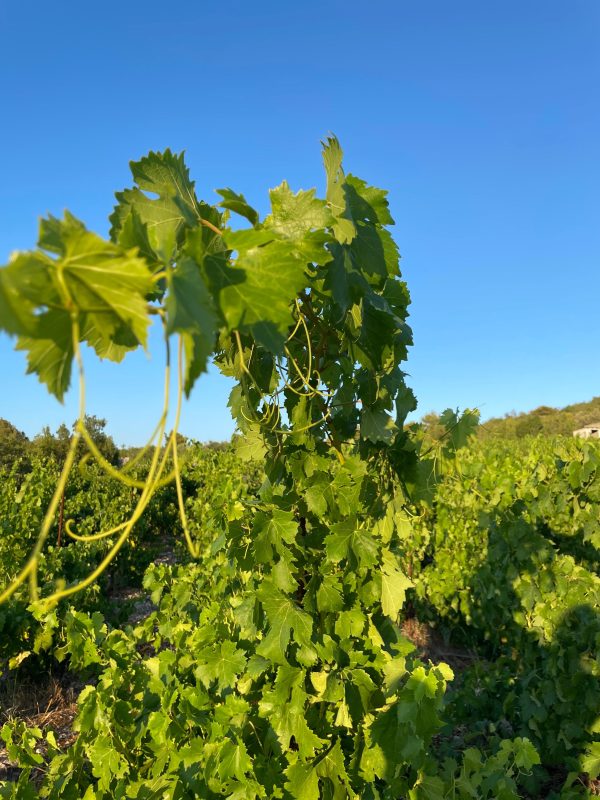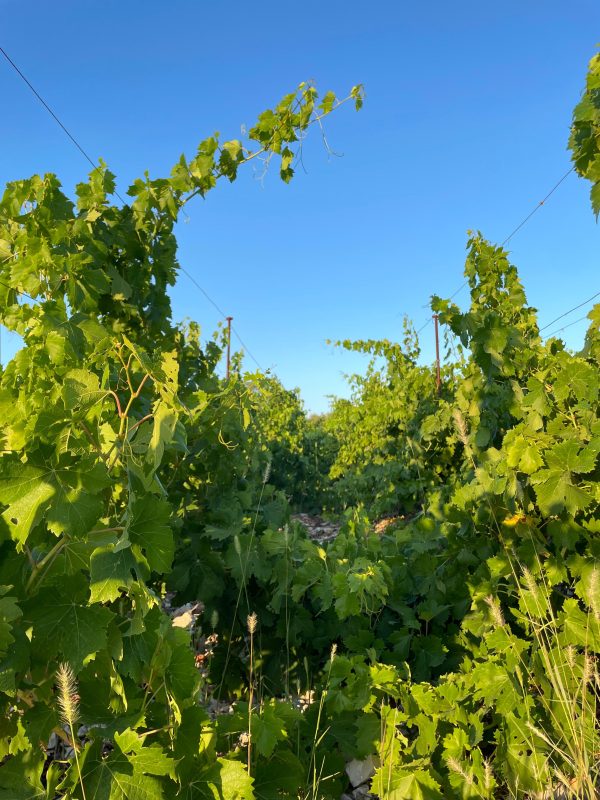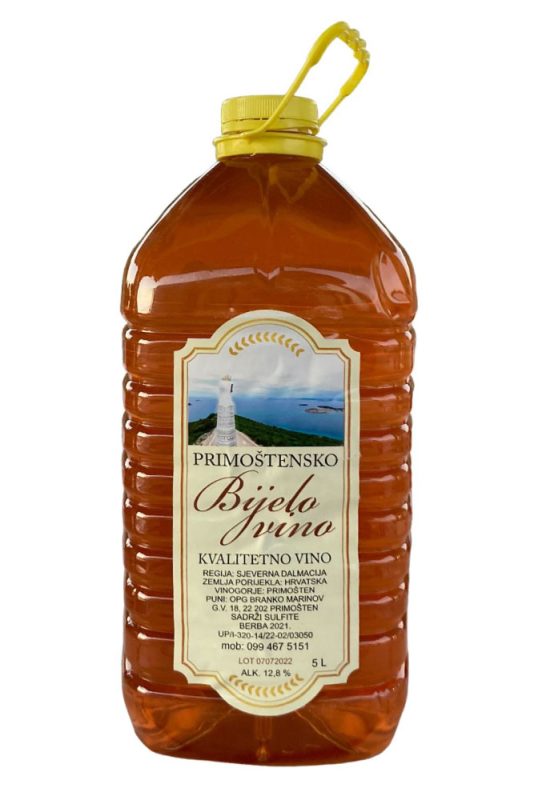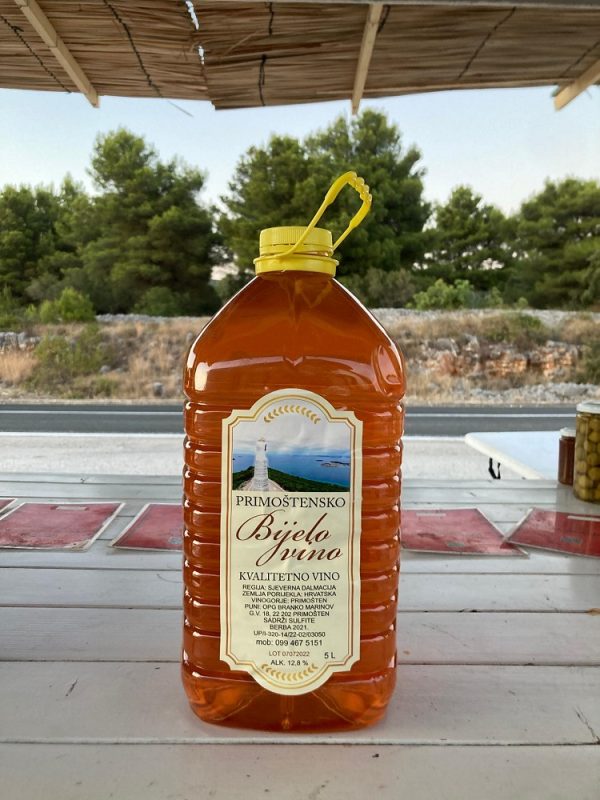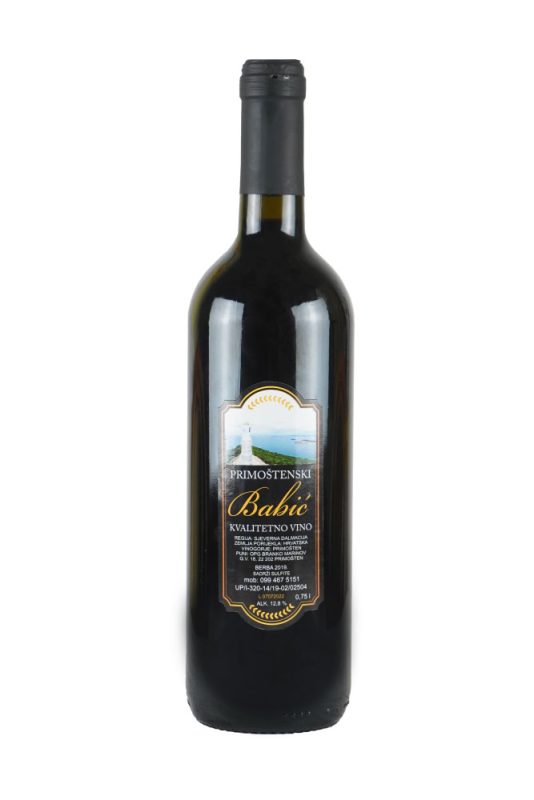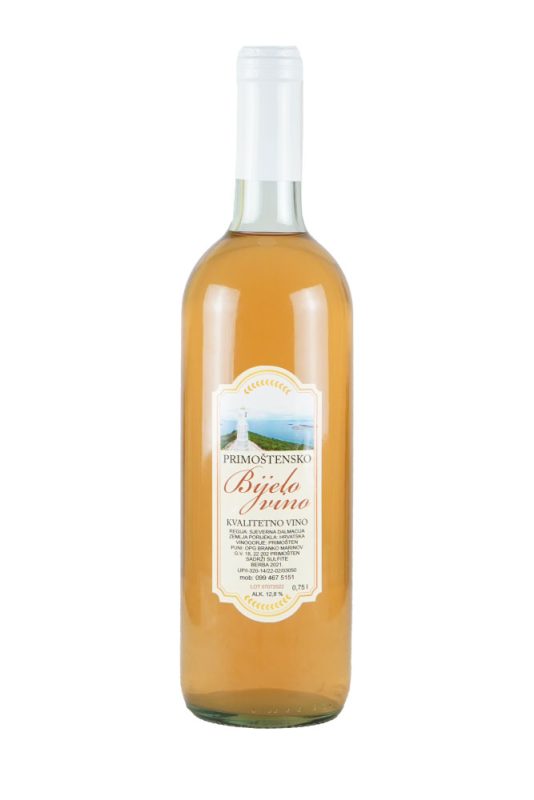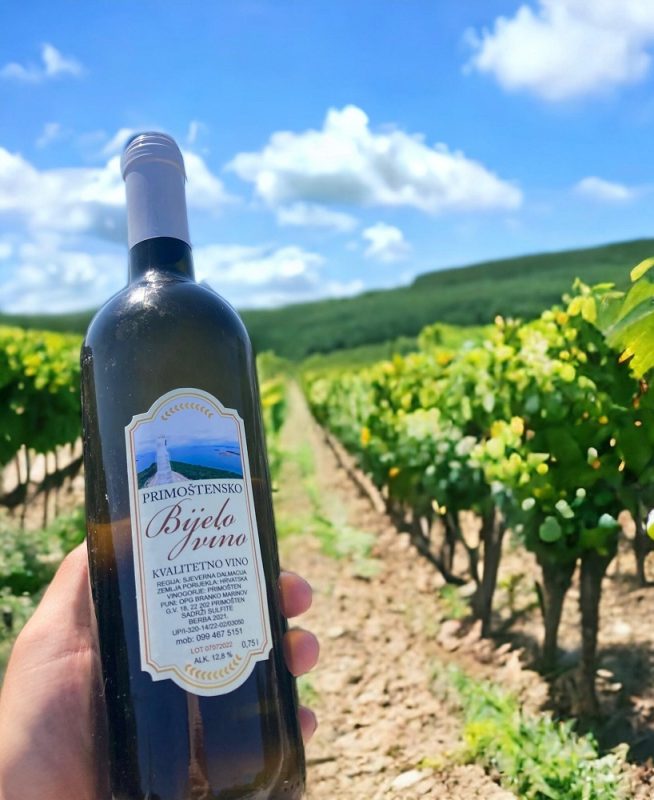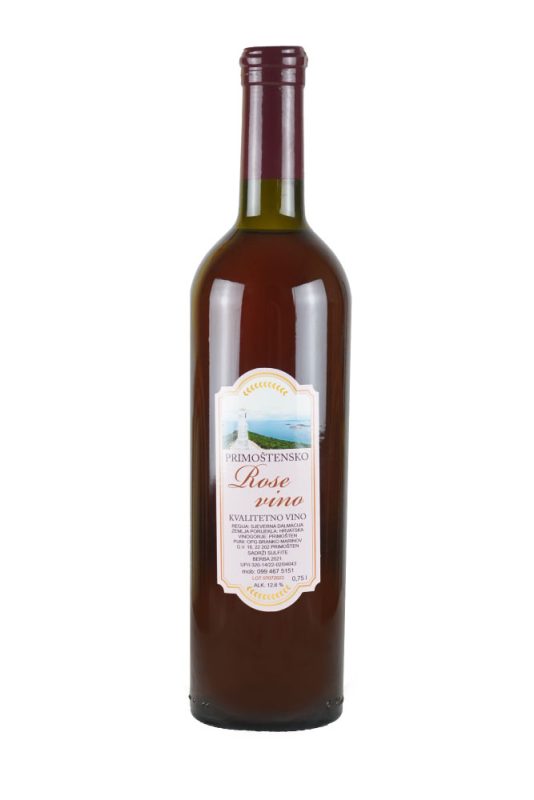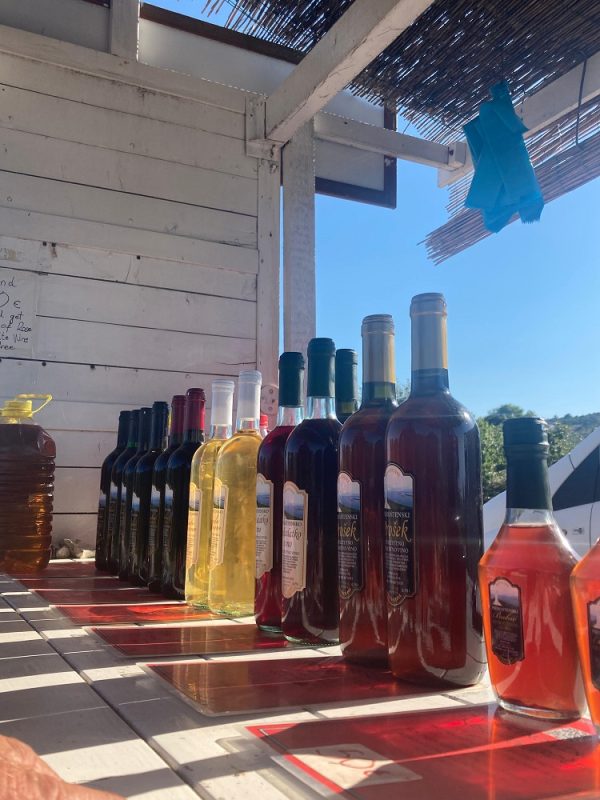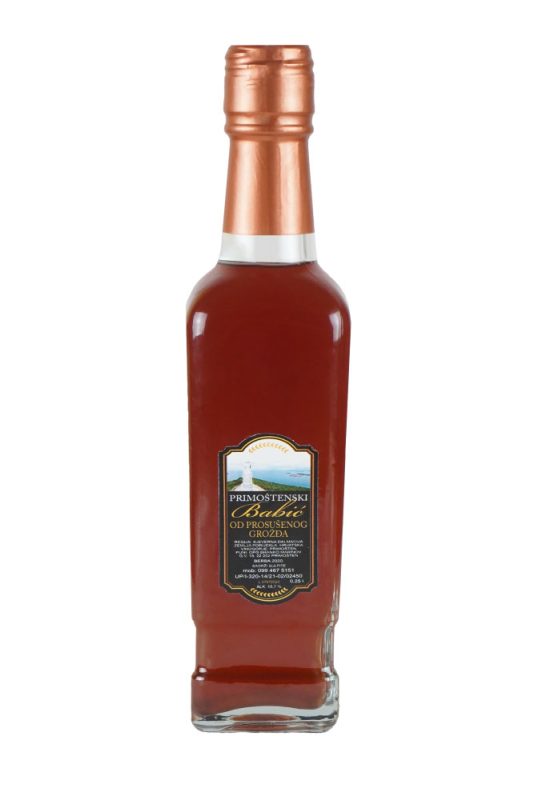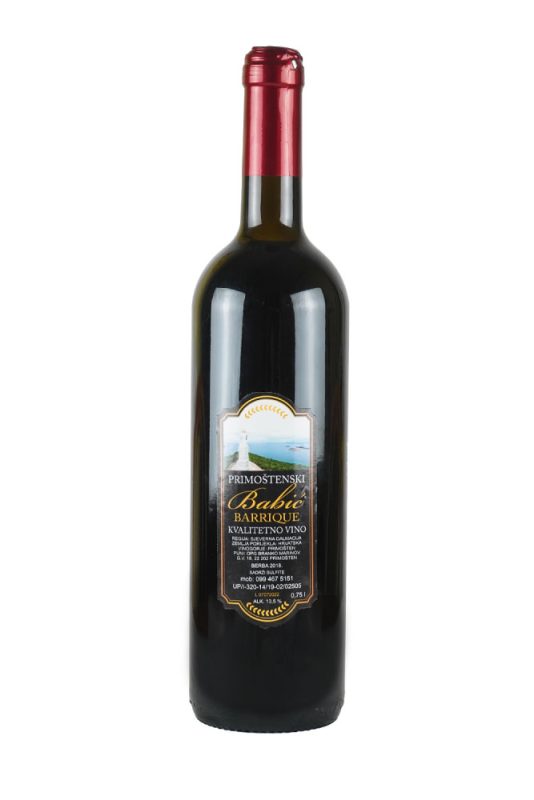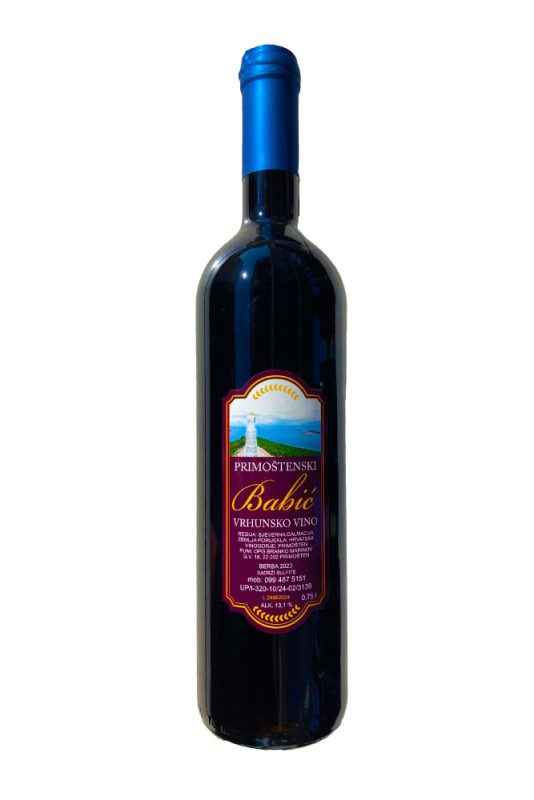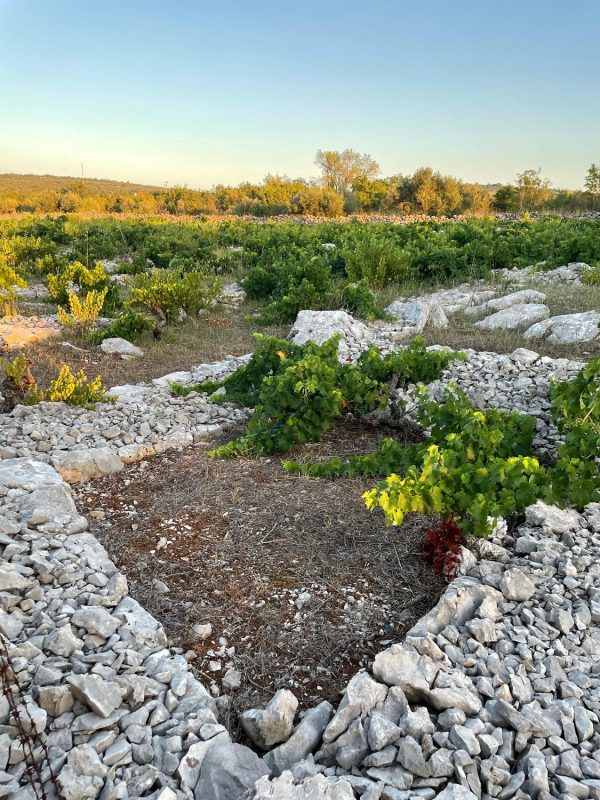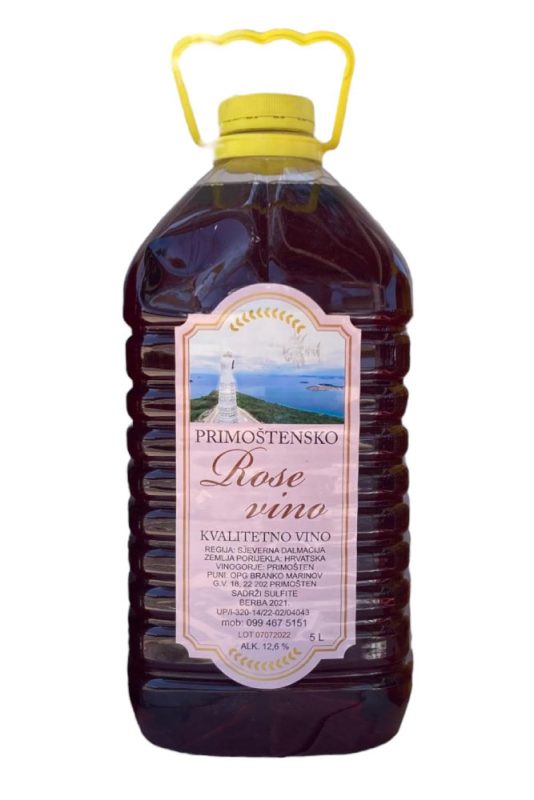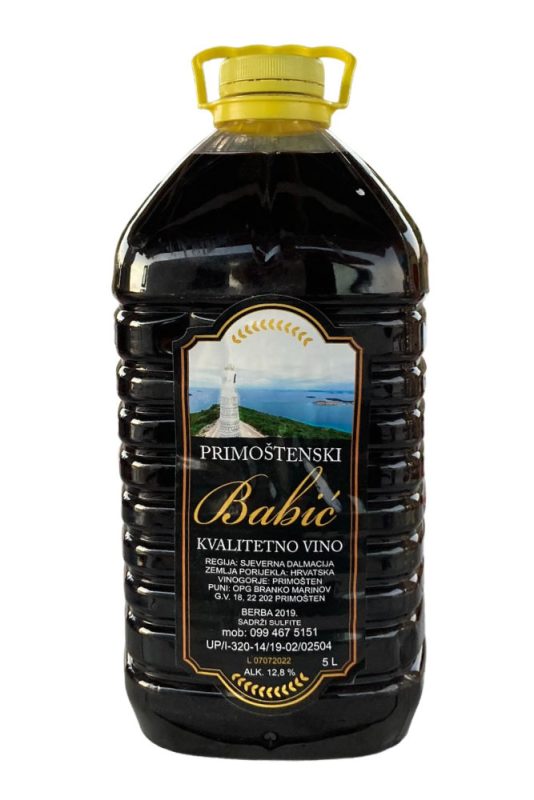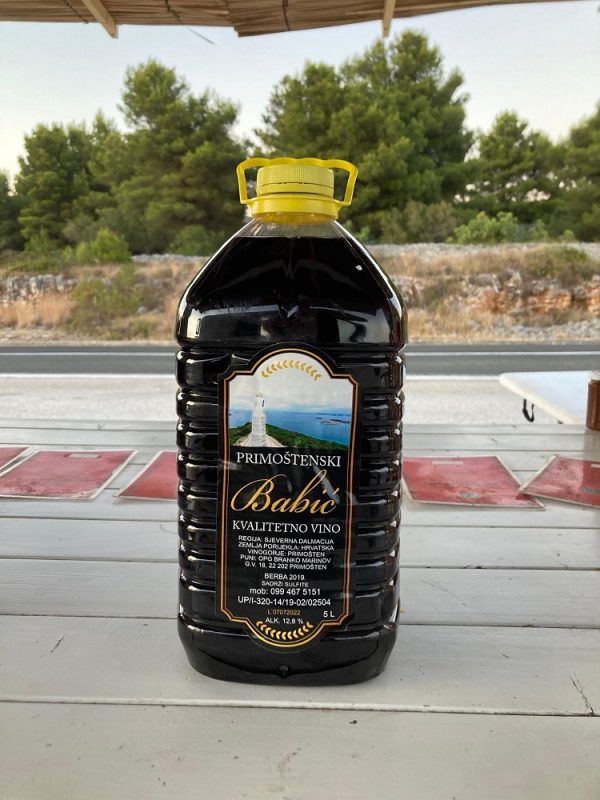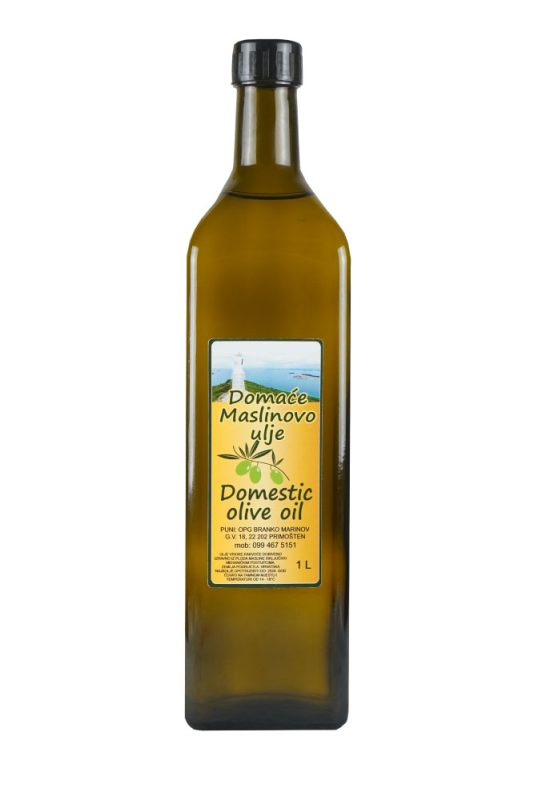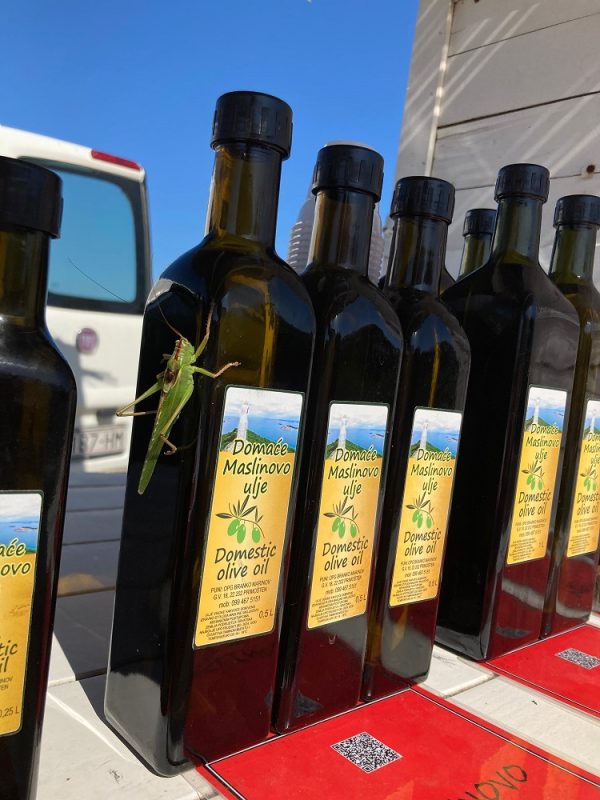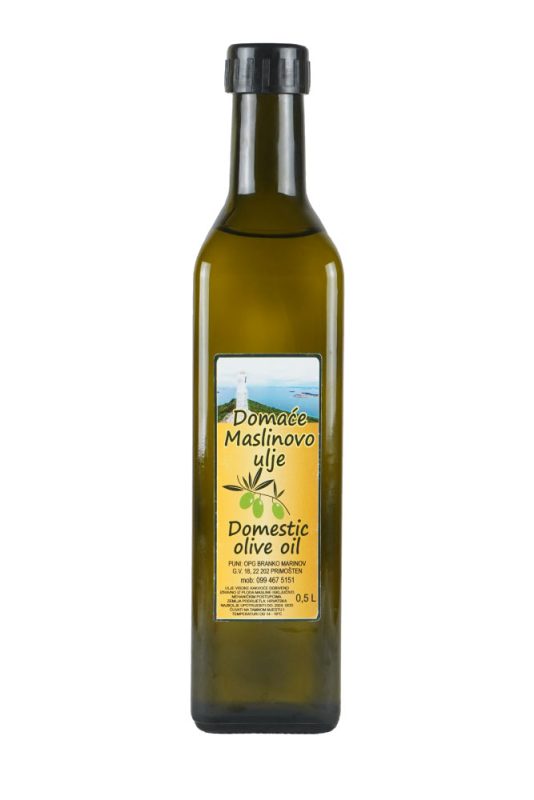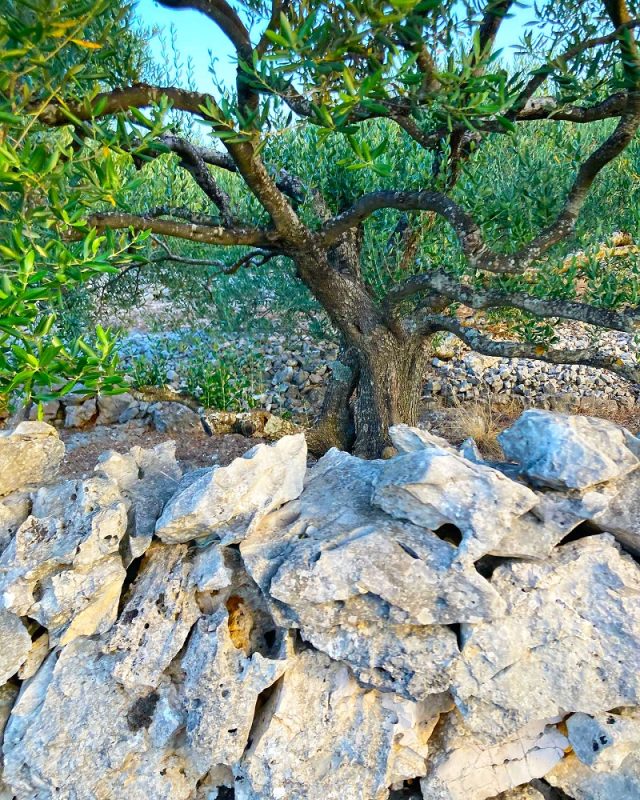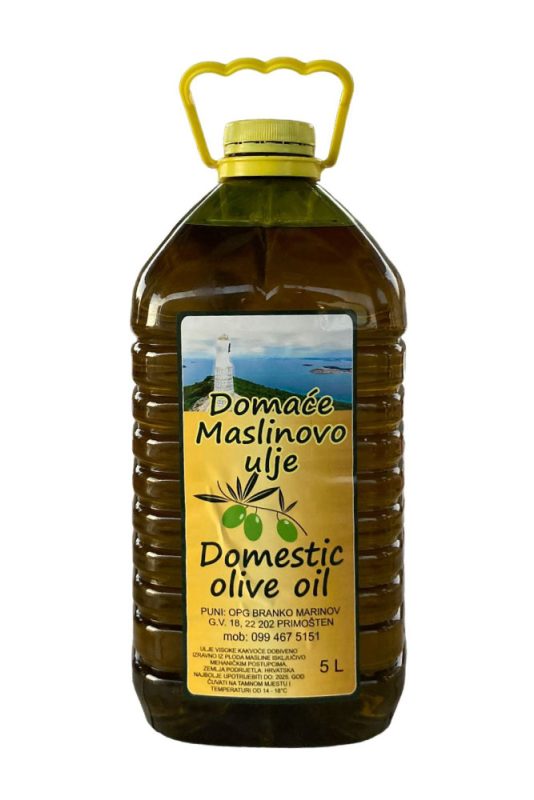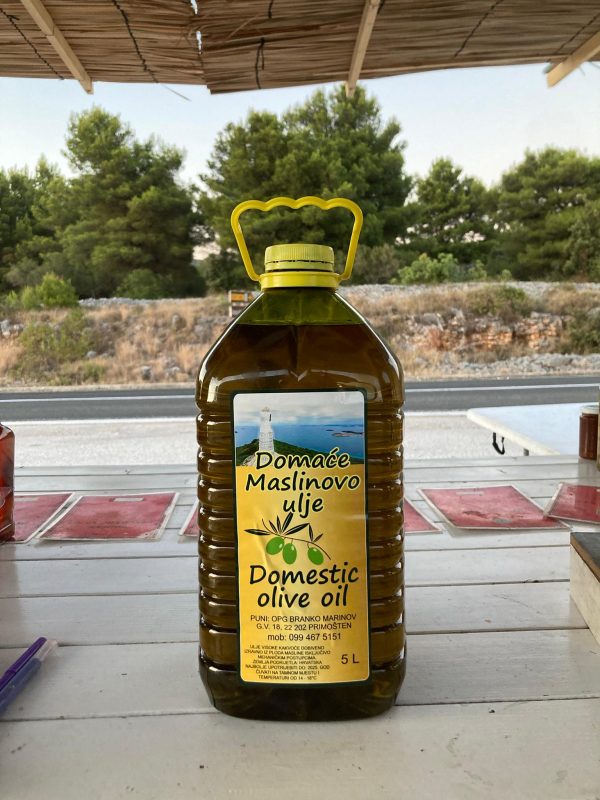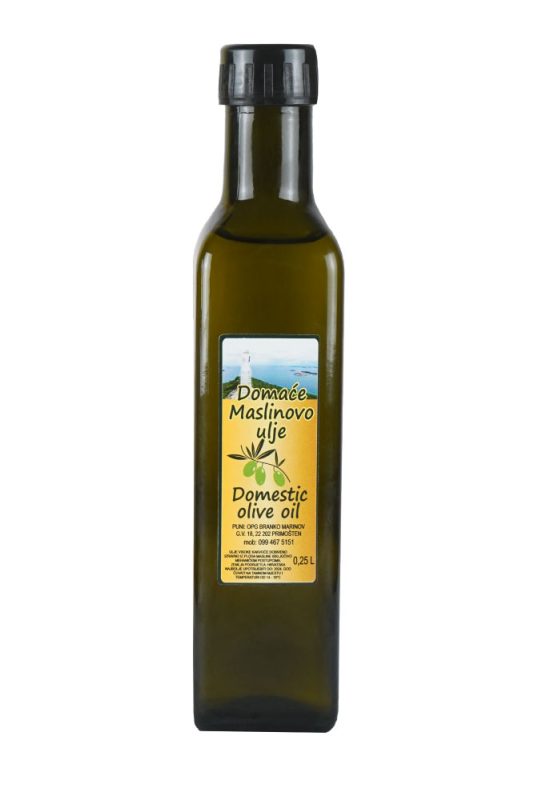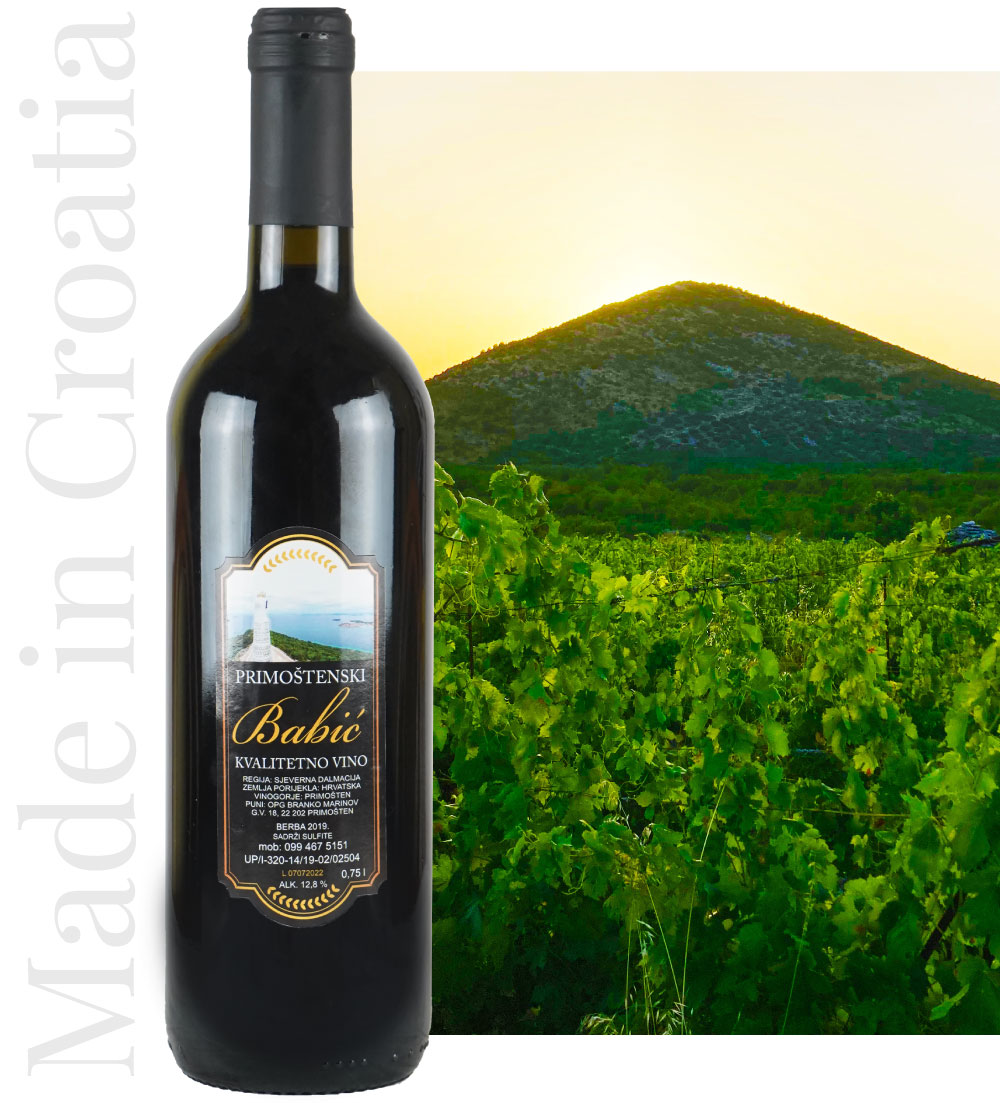
Producer of Premium
Olives and Vines
Olive trees
Vines
With over 400 olive trees on our estate, we are able to produce limited quantities of our olive oil, ensuring that each bottle is fresh and of the highest quality.
After nurturing over 7,000 vines, our wine undergoes careful aging and preparation for bottling, including precise filtration and clarification for clarity and purity
Traditional Agriculture in Primošten: Vlačice and Tirade
In Primošten, the clearing of fertile crljenica land created a network of small plots called vlačice, bordered by low dry stone walls.
By clearing the fertile crljenica soil, a network of very small plots, known in Primošten as vlačice, was established. Vlačice are defined by low dry stone walls.
A series of plots arranged perpendicular to the coastline are called tirade by the locals. Lined up next to each other, tirade form a network of vlačice adapted to the coastal contour of the region.
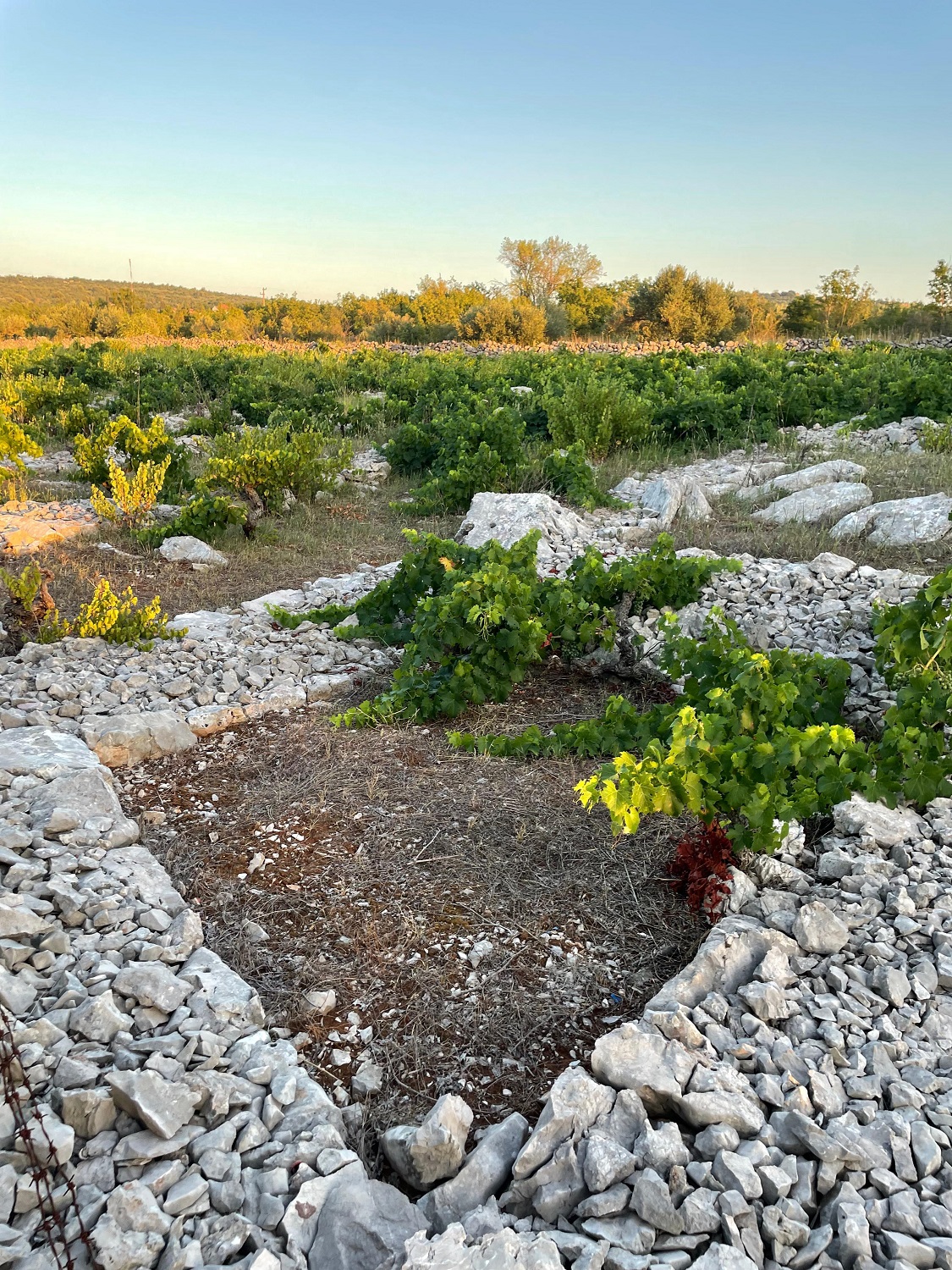
Organic and Sustainable Practices
Harvesting Grapes
The initial step in wine production, grape harvesting, is crucial as grapes are the only fruit that reliably provides the necessary sugar levels to preserve alcohol. Along with sugar, the wine’s consistency is influenced by tannins, esters, and acids, highlighting the importance of harvesting grapes at physiological ripeness. This decision often involves a blend of scientific analysis and traditional tasting, with contributions from external consultants, vineyard managers, and owners. Harvesting techniques vary between mechanical and manual methods, with some wineries preferring the latter to avoid potential damage to the grapes, vines, and soil caused by mechanical harvesters. The harvesting process typically begins in late September for white grapes and early October for red varieties.
Removing Stems
In winemaking, grapes undergo a process known as de-stemming, where they are separated from the rest of the bunch to remove the bitter flavors and aromas that stems and leaves can impart during maceration. While leaving stems intact can help with pressing white varieties, ensuring efficient extraction of juice, de-stemming is a standard procedure for red wine production after the grapes arrive at the press. Removing stems helps avoid astringent compounds and green flavors in the fermenting must. Typically, de-stemming is followed by pressing in red wine production.
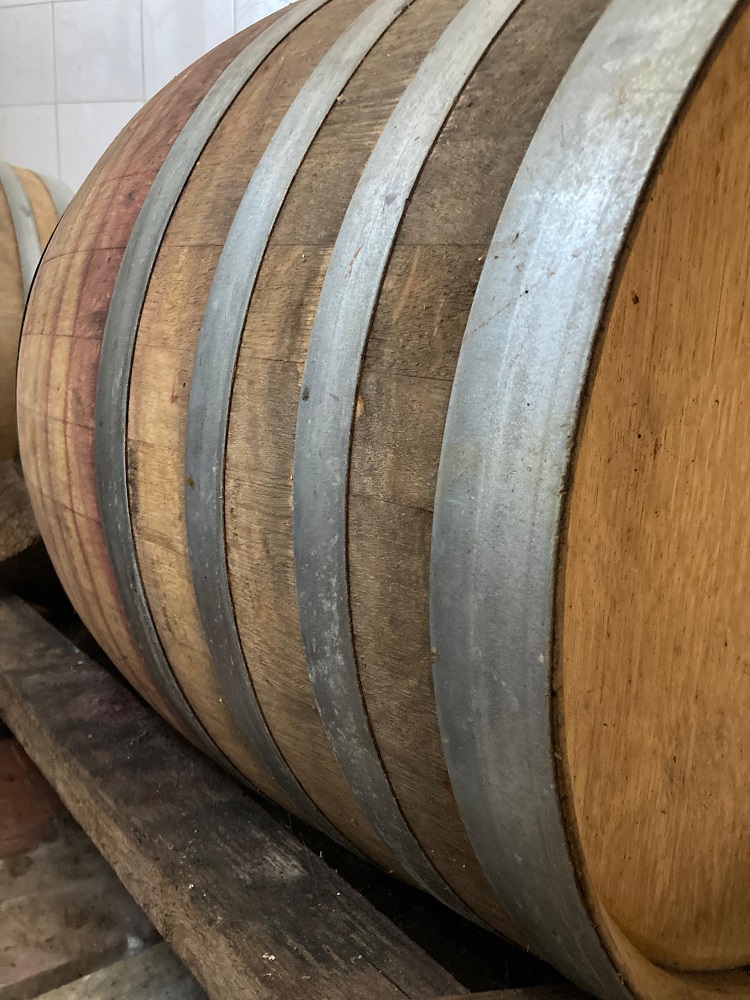
Harvesting
After nurturing over 7,000 vines, our wine undergoes careful aging and preparation for bottling, including precise filtration and clarification.
Quality
Each bottle is filled with precision, reflecting our commitment to quality. With limited quantities produced, every detail is carefully inspected.
Tradition
Finally, the bottled wine is ready to be enjoyed, representing the pinnacle of our craftsmanship. With dedication, we offer meticulously crafted wines.
Traditional Presses
Production Methods
At OPG Branko Marinov, we crush grapes by hand using traditional presses, a crucial step in wine production. Although mechanical presses are available, our commitment to manual methods, reminiscent of the harvest dance, holds historical significance, turning grapes into must. This manual approach ensures careful attention to detail and a connection to tradition. After crushing, the must naturally ferments within 6-12 hours with the aid of ambient wild yeasts, though some wineries might opt for controlled fermentation with specific yeast strains for consistency. Whether producing red or white wine, this initial phase remains fundamental, dictating the character and quality of the final product.
Fermentation or Maceration
During fermentation, which typically lasts from ten days to a month, sugar is converted into alcohol, resulting in dry wine. The duration of fermentation varies, and alcohol levels differ based on the initial sugar content in the must. For our wines, white wine usually reaches around 11%, Babic around 12.8%, while Barrique Babic can exceed 13%. In contrast, dessert wines typically have over 15% alcohol to achieve the desired sweetness.
Malolactic Fermentation
After the initial stages of winemaking, the wine undergoes malolactic fermentation (MLF), converting malic acid into lactic acid, reducing acidity, and improving flavor. MLF softens acidity, enriches aroma, and enhances wine quality. Lactic bacteria facilitate the breakdown of malic acid, synthesizing volatile compounds. Controlled management of MLF is crucial for positive wine outcomes. The widespread use of MLF in red wine contrasts with its application in white wine production. Historically, high-acidity white wines now favor moderate levels, affecting winemaking techniques in cooler regions.
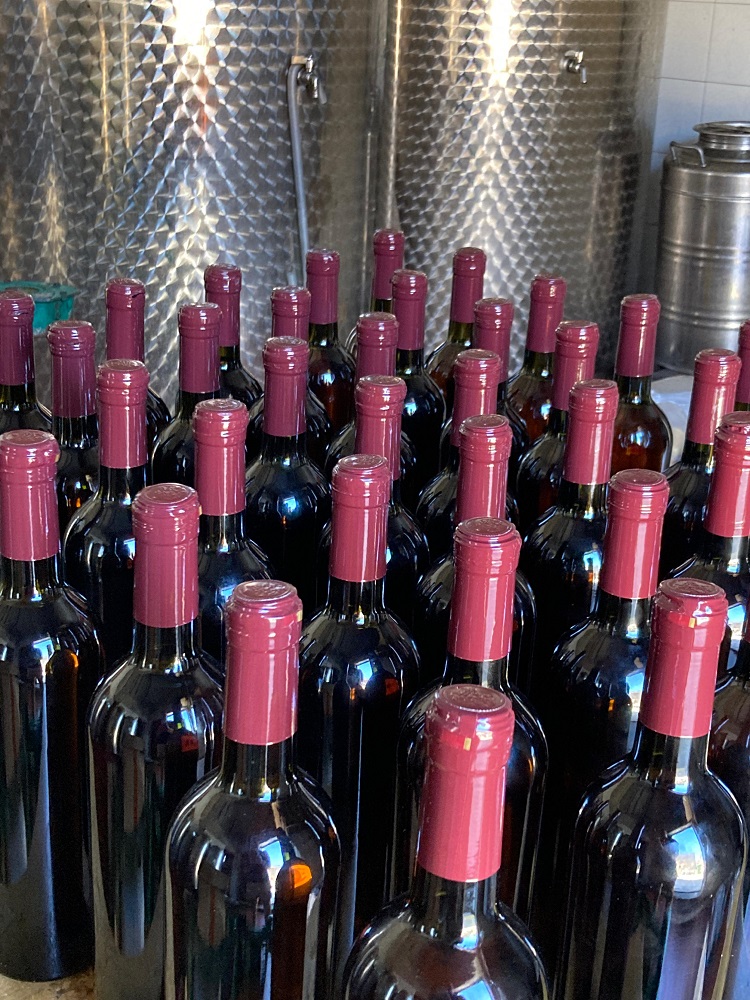
Our Grape Varieties
Babić
Traditionally grown in the terraced vineyards of Primošten, Babić boasts a rich history that dates back to ancient times. It promises the production of exceptional wines characterized by a unique and intricate terroir. The stone walls that traverse the steep Bucavac appellation, cascading down to the clear Adriatic Sea, create a mesmerizing "stone lace" embracing the vines. These picturesque vineyards represent a true labor of love. Originating from Croatia's Dalmatian region, Babić grapes are known for their small, thick-skinned berries that thrive in the region’s distinctive terroir.
Originating from this area, Babić produces a wine celebrated for its richness and complexity. With aromas of red fruit and subtle earthy tones, it offers a delightful taste of dark fruit and Mediterranean herbs. Its balanced acidity and approachable tannins provide a refreshing finish. Babić pairs excellently with Dalmatian cuisine, making it a favorite among wine enthusiasts worldwide. Its recent international recognition and limited production have solidified its status as a sought-after collector's item, captivating the interest of connoisseurs and investors.
Maraština
Maraština, cultivated throughout the Mediterranean and along much of the Croatian coast, is known by various names such as Rukatac, Krizol, Visana, and Malvasia del Chianti. Although not native to Croatia, it thrives in the region's favorable conditions and shares genetic similarities with other varieties. With vineyards predominantly located in southern regions like Hvar, Korčula, the Pelješac Peninsula, and Konavle, Maraština grapes ripen late, offering high sugar content in sun-drenched locations. Its distinctive aromatic and fruity characteristics, with notes of apricot and peach, result in a golden-yellow wine with a rich texture and hints of vanilla. Enjoyed slightly chilled, Maraština pairs perfectly with seafood, salted anchovies, various risottos, and goat cheese. Known for dessert straw wines such as prošek, Maraština wines are produced by winemakers across Croatia under names like Rukatac and Maraština, each offering unique expressions of this versatile grape variety.
Shiraz
Shiraz, globally recognized as a red grape variety, known as Syrah in Old World regions, particularly thrives in the northern Rhône in France. The Barossa Valley in South Australia boasts some of the world's oldest Shiraz vineyards, known for producing high-quality wines characterized by rich, concentrated dark fruit flavors, hints of oak, and high alcohol content. Similar to Cabernet Sauvignon, Shiraz grapes have small berries with thick skins, which give the wines deep purple hues and firm tannins. Typically full-bodied with moderate acidity, Shiraz wines offer a complex flavor profile, ranging from intense dark fruit to nuanced hints of leather and tobacco. The difference between Old World and New World Shiraz/Syrah extends beyond nomenclature, showcasing stylistic variations; while Syrah tends towards earthy profiles, Shiraz leans towards fruity characteristics. In regions like South Africa and Chile, winemakers may choose the name Syrah instead of Shiraz, resulting in wines with different expressions compared to those from Old World climates. Shiraz pairs exceptionally well with hearty dishes such as steak, roast beef, smoked brisket, and aged cheeses, thanks to its depth and weight. Australian Shiraz, in particular, complements barbecue dishes, enhancing the enjoyment of grilled meats with its robust flavors.
We are very careful in the production process of our olive oil.
Under our family farm (OPG), we have been operating since 2018, dedicated to producing high-quality olives and grapes that reflect our commitment to tradition and excellence. However, our journey did not start in 2018. For generations, we have been dedicated to creating fine olive oil and wine, with each bottle carrying the essence of our heritage and the richness of our land.
Organic Production
The key is mature, healthy olives. Early harvesting is not ideal as it results in oils lacking essential fatty acids like oleic acid, vital for the nutritional value and classification of the oil. Our family harvests olives in late October for peak ripeness, ensuring exceptional extra virgin olive oil. Modern processing includes cleaning, washing, crushing, pressing, and separation in advanced facilities. Only healthy, freshly harvested olives are brought to the mill, where they are cleaned, crushed, and separated to obtain oil through cold pressing. Traditional stone mills could not prevent contamination. Once pressed, the oil is immediately stored in tanks to maintain freshness, away from oxygen, at temperatures between 15°C and 20°C until it reaches the consumer.
From Our Farm to Your Table
With over 400 olive trees on our estate, we produce limited quantities of our olive oil, ensuring each bottle is fresh and of the highest quality. More than 100 of our olive trees are over 230 years old, embodying generations of tradition and care. We take pride in delivering the pure essence of our land, directly from our farm to your table. Each batch undergoes detailed analysis and testing to guarantee its excellence. Our commitment to quality extends to every step of the process, from careful harvesting to the moment the oil is bottled before it reaches our stand.
